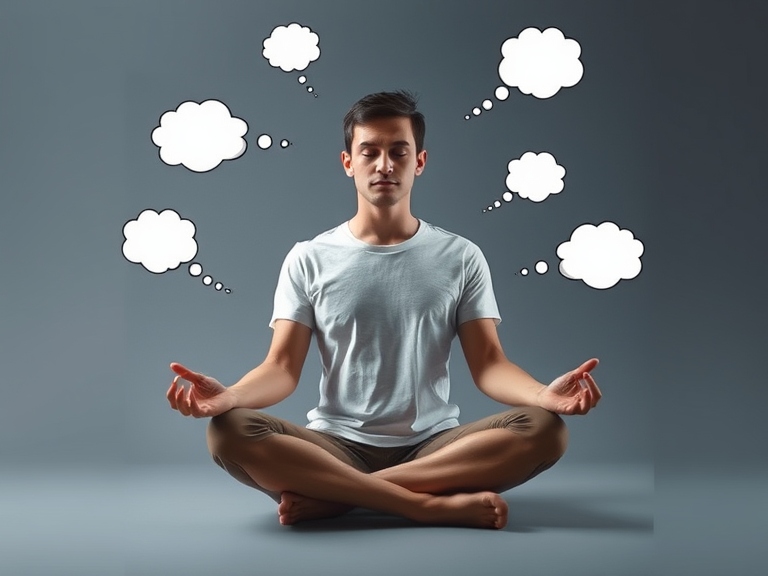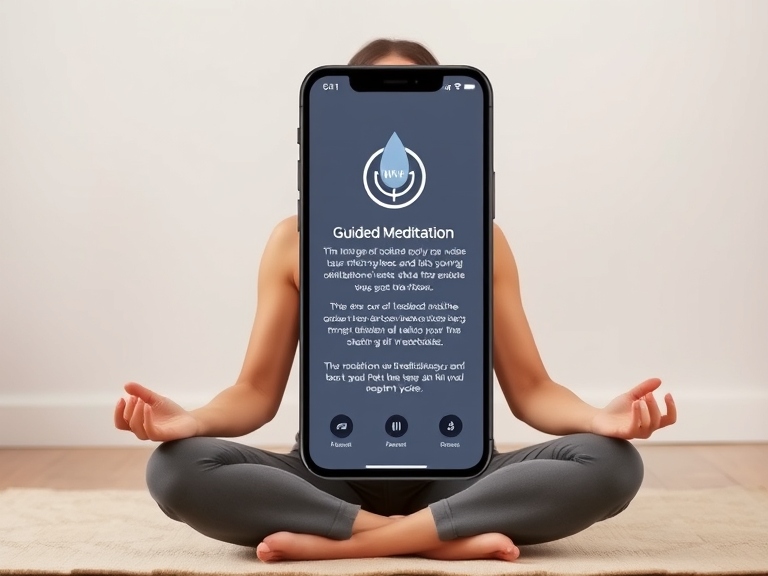Are There People Who Can’t Meditate That may be true, however, meditation has become a household phrase and common practice among many. Stress relief, enhanced concentration, or tranquility is achievable through meditation for most people. But the question that may linger in some minds is whether there are individuals who are incapable of meditating. Are there people who cannot meditate, or can everyone be taught to do so?
In this article, however, we will examine the potential difficulties that some may experience in regards to meditation, and how any person can overcome those difficulties.
Meditation
Meditation is a technique that entails concentrating one’s mind, mostly on one’s breath or an object, with the objective of achieving focusing of the mind and relaxation of the body. It assists in relieving psychological pressure, and provides comfort. Many believe that exercise is only reserved for religious or spiritual people, but it is also embraced in normal life in an effort to enhance mental wellness.

Why Do Some People Experience Hardship In Meditating
There are different explanations as to why some people may find it difficult to meditate. Although it may appear that everybody may simply sit somewhere where it is quiet and meditate, that is not always the case. Let’s look at some of the common reasons why some people might feel like they can’t meditate.
1. A Mind That Doesn’t Settle
Restlessness is one of the most common causes as to why an individual does not notice any positive effects, in particular, the ability to meditate. We are all aware that the modern society is full of information and one quick thought jumps into another before one knows it in this dynamic world. For this reason, it may be difficult to sit still, and turn inward without any distracting thoughts or ideas even for a minute during a meditation session.
- Excessive Thoughts: There are also people who can never stop their stream of consciousness, even in a meditative pose. They are constantly bombarded with irrelevant thoughts about worrying, organizing, or indeed any other ideas.
- Noise and Movement: From these interruptions, sound, media and other activities can also be a barrier to meditation.
Solution: This challenge can be brushed aside with a bit of patience. It is perfectly natural for one’s attention to wander while meditating. With consistent effort, one learns everything is hard it is to focus and, however, frustration is not advisable.

2. Deprivation of Time
Meditation is viewed as a luxury in today’s fast-paced society. Most believe that meditating means dedicating hours upon hours to pure stillness which is far from the truth. With proper meditation methods, practices can be as short as 5-10minutes per day.
- Busy Schedules: Those with great jobs, children, or other obligations often argue there is simply no time for meditation in their lives.
- Impatience: Some individuals are so disappointed over not being able to attain peace instantly through meditation.
Solution: Start with a small duration. Even 5 minutes of meditation can be effective. Start with 2-5 mins everyday, take it in the morning or before sleeping.

3. Physical Discomfort
Physical discomfort is another explanation why some people claim they cannot meditate. Extended periods of meditation may lead to back aches, muscle stiffness, and distraction from the meditation activity.
- Posture Problems: People who are not used to sitting on the ground or sitting correctly may argue it is painful.
- Chronic Pain Sufferers: Chronic pain injured individuals often can’t find the right position to sit in.
Solution: You don’t have to sit on the floor to meditate! You can sit on a chair or even lie down, as long as you remain comfortable and alert. Using cushions or blankets also helps.

4. Imitating The Impossible
There are those who may not sit in silence because of the bar they’ve set for themselves. This may include beliefs or even stories on how one should stop every single thought or in a moment be in bliss.
- Perfectionism: People who wish to silence their minds completely or attain an ideal inner stillness can end up disappointed when intrusive thoughts arise.
- Comparisons: Feeling like one’s experience of meditation is somehow ‘wrong’ compared to how one has seen other people meditate.
Solution: Meditation is not instant. So, it doesn’t matter if your mind doesn’t get completely quiet. Each meditation is unique and there is no need to stress yourself the way it works. Improvement is what needs to be focused on rather than achievement.

5. Illnesses of the Mind
Some people may also face eyebrows since certain mental health states can impede the practice of meditation. As for people who experience anxiety or depression and traumatic events, even looking at a calming meditative image initially creates more opposition to that state.
- Anxiety: Those suffering from anxiety disorders may not be able to keep their bodys still for they are overly tensed or anxious.
- Depression: Zen practitioners who are depressed may endure difficulty finding the will to engage or may be consumed by ruminative thoughts in the course of the practice.
Solution: In case there are worries about mental health, it’s better to consult with a mental therapist and a meditation teacher. Some types of meditation, like walking mediation or mindfulness, may be better for those suffering from anxiety and depression.

Is it Possible for Anyone to Meditate?
The answer is unequivocally affirmative! Although tension may accompany the first instances of meditation for some individuals, it remains a skill which can be acquired. Meditation just like any other craft takes time and, most importantly, practice. In the end, with enough time everyone, including those who claim that they “cannot meditate,” will discover ways of making it work for them.
Helpful Strategies To Sabotage Your Internal Resistance To Meditation
If you’ve been having trouble practicing meditation here are a few suggestions that will help ease the burden:
- Begin with Smaller Goals: Start with 5 minutes a day and increase the time as the days go by.
- Listen to the Instructions: Guided imagery may assist in concentrating the thinking of the individual thus meditation is enhanced.
- Use a Particular Timing for The Activity: It will help if you make meditating the same time every day.
- No Self-Degradation: Do not be mad at yourself for seeking another focus. Just slowly concentrate once again.
- Use Apps or tools: Reminding oneself that aided and guided meditation practices are available via mediation app is also useful.

Everyone Can Meditate!
Every person faces some challenges and obstacles in practicing meditation and may be frustrated but no one should think that meditation is an impossible task.
However, the effort spent trying to learn these skills is never in vain, because such rounded benefits can be obtained by anyone, even the one with “the most restless of the restless minds”.
But this should not be interpreted to mean that one should strive for excellence with every session because that is not how it works. It is most vital to try and do practice, however short, every single day of the week. In due course, you will enjoy the merits and appreciate that meditation eases with time and becomes fun.
The thing is, were you ever in a situation when ‘I can’t meditate’ came to your mind? You should modify that thought. Given time and a little training, every person can master the art of meditation and the joy it offers.

